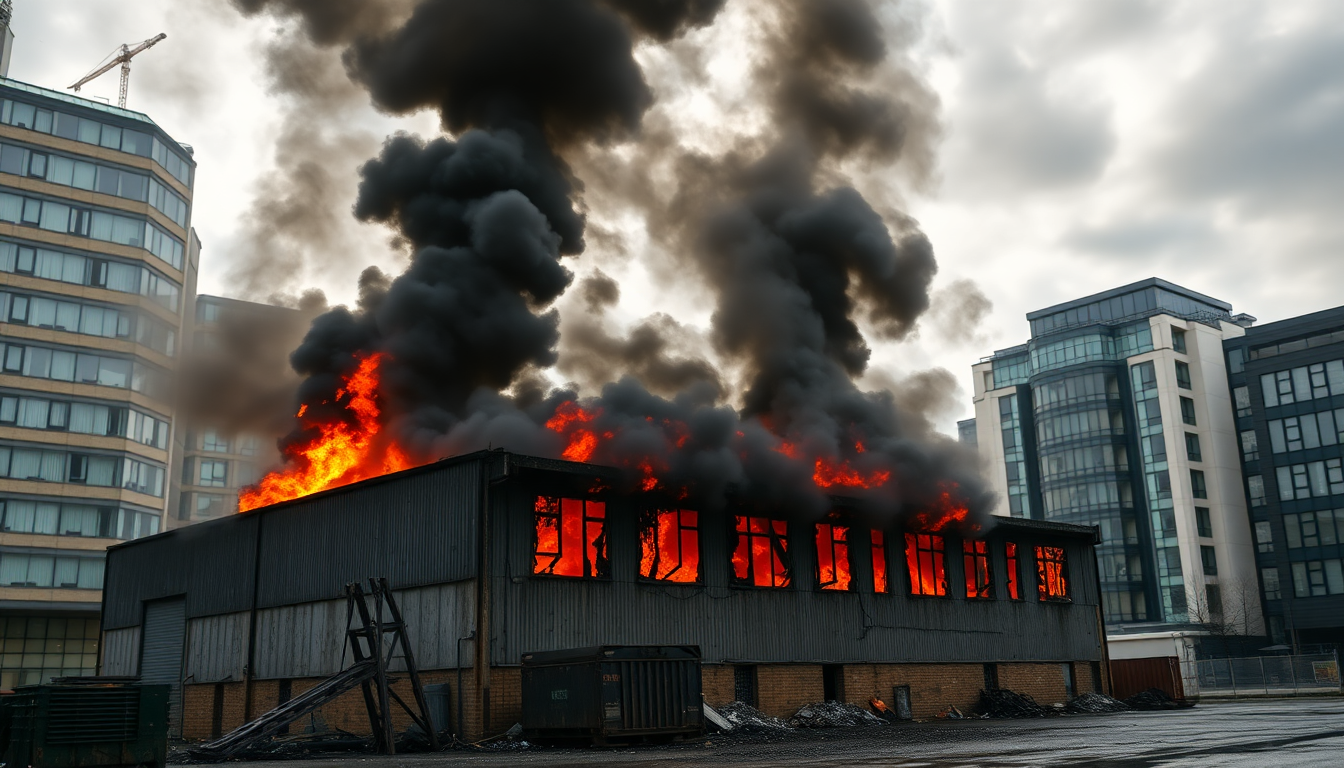Table of Contents
As tensions continue to rise in Europe due to the ongoing conflict in Ukraine, the alarming increase in sabotage incidents linked to Russian operatives is hard to ignore. One striking example occurred in March 2024, when a significant arson attack targeted a warehouse in east London, which was storing equipment meant for Ukraine. This incident not only underscores the dangerous tactics employed by Russia’s intelligence services but also raises pressing questions about the broader implications for security across the continent. How far will these tactics go, and what does it mean for our safety?
The London Arson Incident: A Closer Look
On that fateful night, just before midnight, a truck driver nearby was jolted awake by the crackling flames coming from the warehouse. Despite his desperate attempts to douse the fire, it quickly became clear that the situation was far beyond his control. As emergency responders rushed to the scene, chaos unfolded in the neighboring apartment building, where families were urgently evacuated. This wasn’t just a random act of vandalism; it was part of a coordinated effort allegedly orchestrated by Russian intelligence.
After the incident, British courts revealed that three men had been convicted of arson, while two others, including the main organizer, Dylan Earl, had already pleaded guilty. Prosecutors indicated that this attack was part of a broader campaign of disruption orchestrated by Moscow, which has seen over 70 documented incidents since the invasion of Ukraine began in February 2022. Isn’t it unsettling to think about the scale of this operation?
Growing Concerns Over Sabotage Tactics
European intelligence officials are increasingly worried about the rising violence and risks associated with these sabotage operations. The nature of these incidents has evolved drastically, with a concerning uptick in the use of arson and explosives, posing serious threats to lives and property. In 2023 alone, there were 12 documented cases of serious sabotage—an alarming rise compared to previous years.
Officials pointed out that campaigns like this tend to escalate in severity over time. The Kremlin’s apparent reliance on untrained operatives complicates matters further, as these individuals are often drawn from various backgrounds and lack the necessary skills to execute such dangerous tasks safely. This shift from professional spies to amateurs reflects a significant adaptation in Russia’s operational strategy, particularly following the expulsion of numerous intelligence officers from Western nations. What does this mean for the future of espionage in Europe?
Recruitment and Motivation of Saboteurs
The recruitment process for these saboteurs raises even more concerns. Documents from the London trial offer insights into how individuals like Earl get involved in such activities. Communication via messaging platforms has made it easier for recruits to connect with their handlers. For instance, Earl was in touch with a Russian operative who encouraged him to watch espionage-themed television shows as a way to prepare for his role in these operations.
This strange mix of serious and trivial communication highlights the bizarre normalization of sabotage efforts. Earl’s self-proclaimed ties to various militant groups illustrate the desperation and thrill-seeking behavior that often characterize recruits. Their motivations vary widely, from financial incentives to ideological alignment, yet the danger they pose is undeniable. Isn’t it chilling to think about the mindset behind such actions?
Implications for the Future
The implications of these incidents stretch far beyond immediate physical destruction. They carry significant psychological impacts on communities, the potential for escalating violence, and broader geopolitical ramifications. As intelligence officials have pointed out, the dynamics of such campaigns can spiral out of control, threatening not just targeted businesses but also innocent bystanders and residential areas.
With conspirators discussing future targets, including businesses linked to Russian tycoons, the threat of further sabotage remains very real. As countries confront the reality of these covert operations, the urgency for enhanced security measures and international cooperation becomes increasingly clear. The evolving tactics employed by Russia’s intelligence services demand a proactive approach to mitigate risks and ensure public safety across Europe. How prepared are we to face this escalating challenge?


